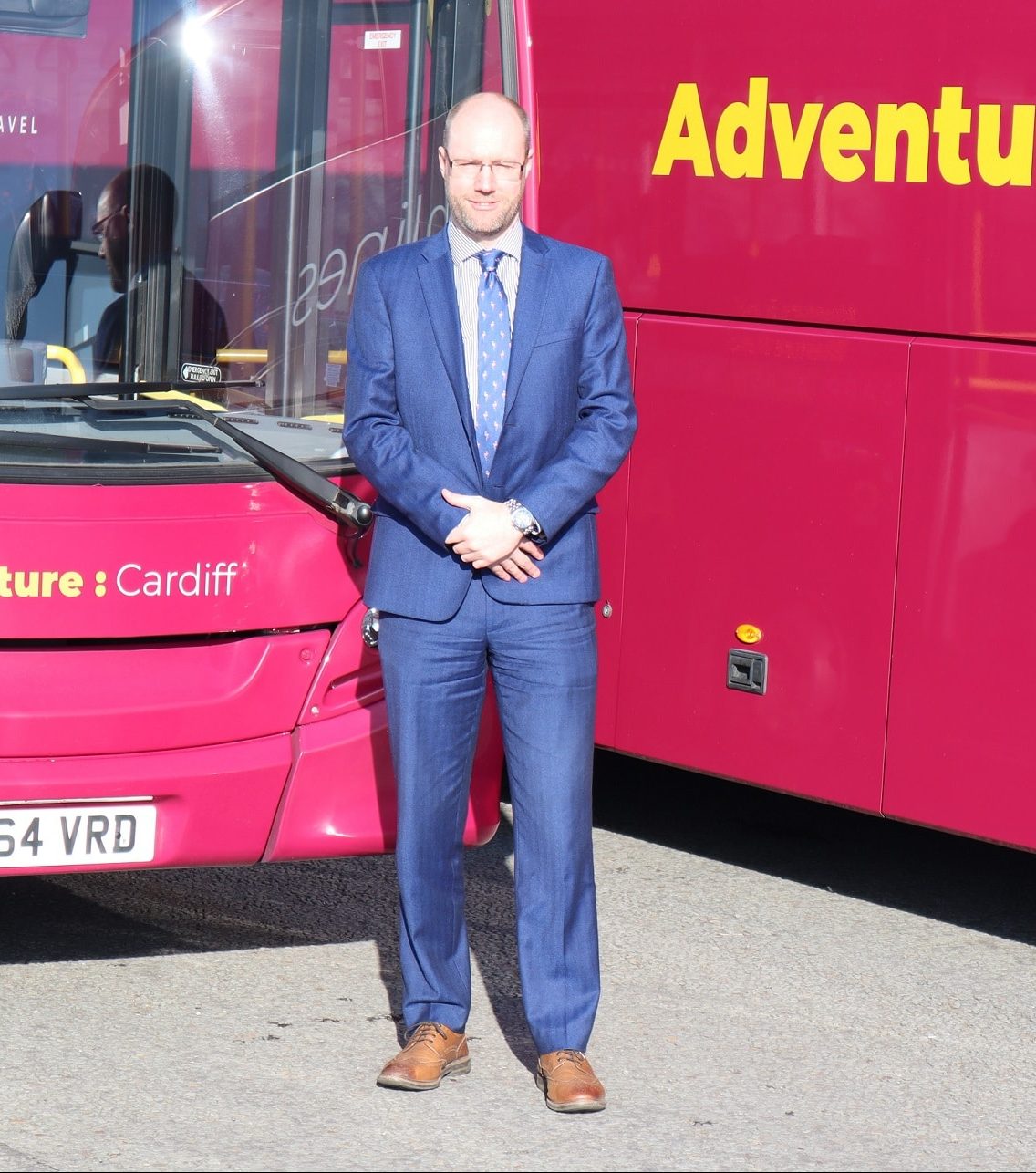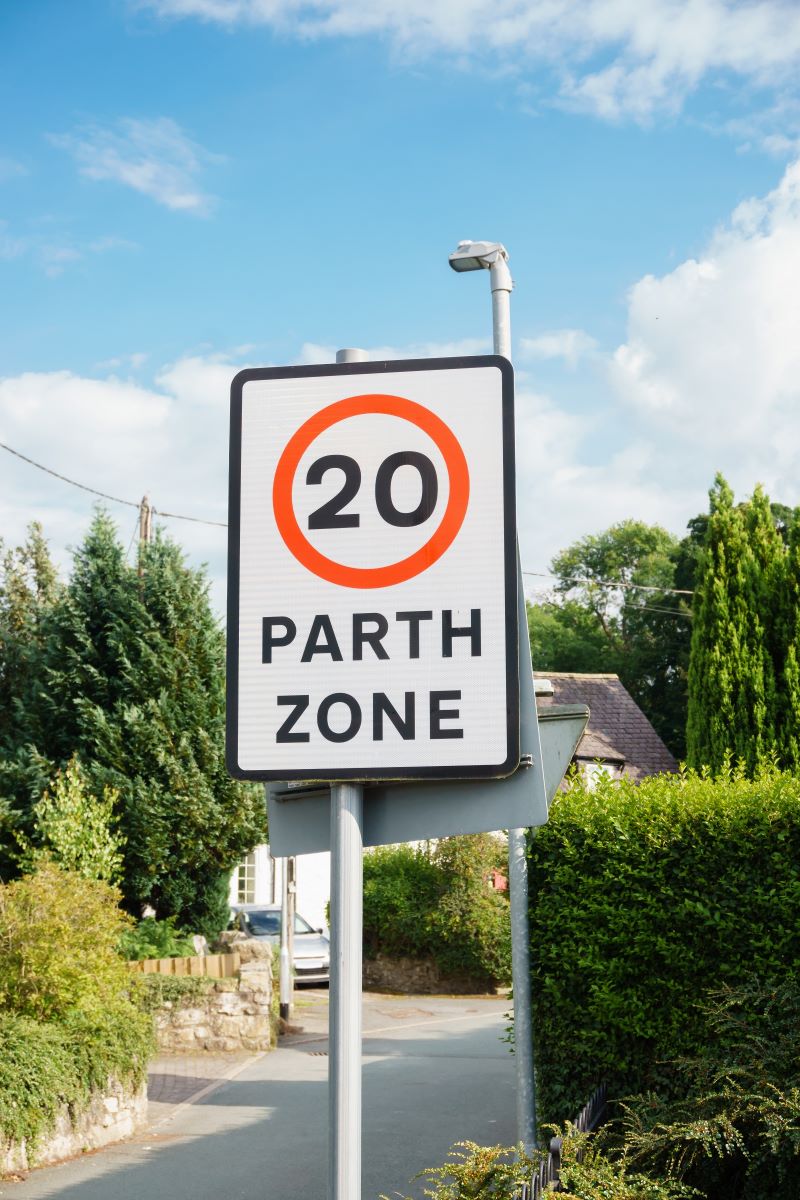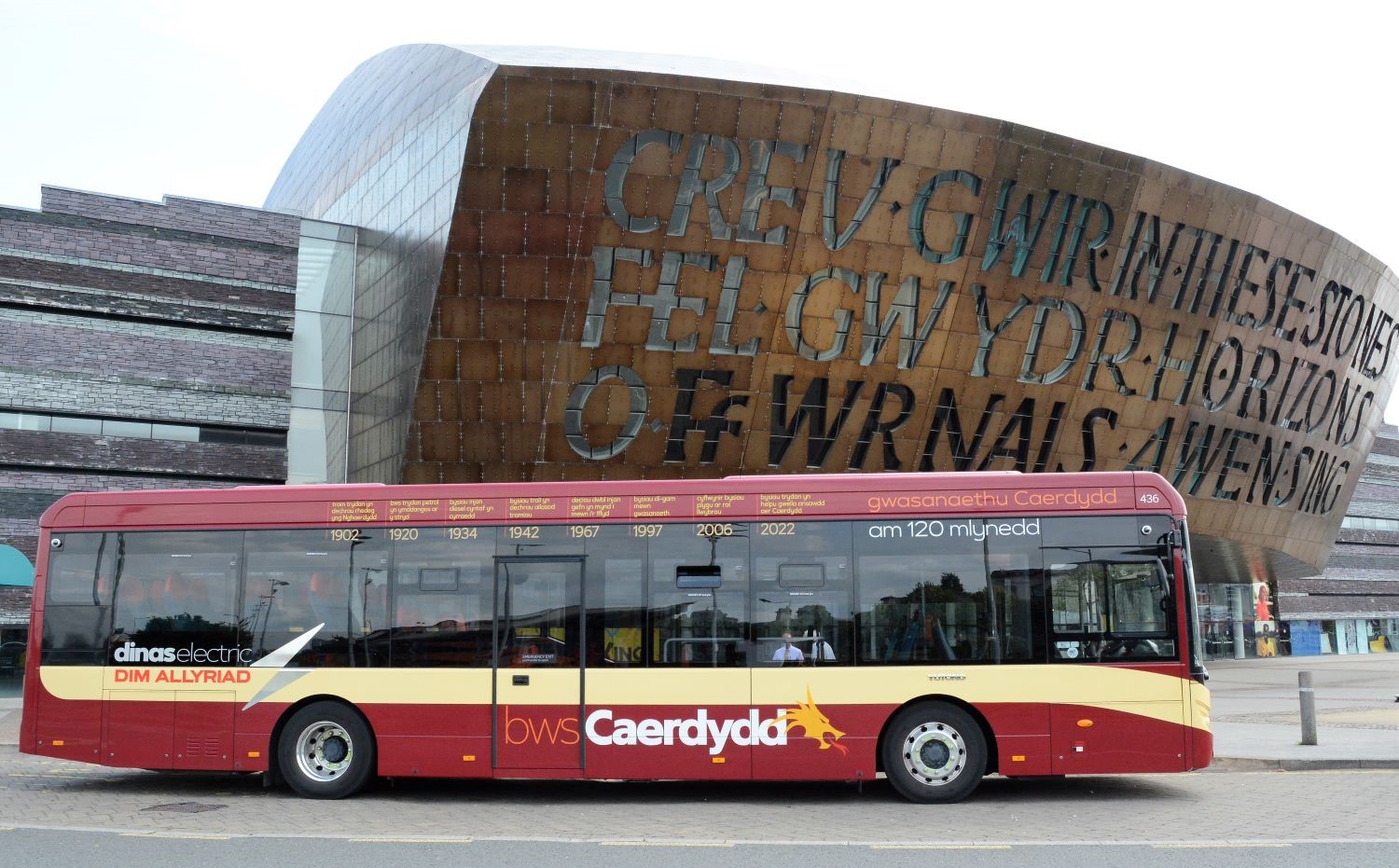The measure set to be introduced this Sunday 17 September is already partly blamed for timetable changes, with operators worried that more could be needed
The bus industry in Wales has expressed concern over the impact of the new 20mph default speed limit on urban roads which is set to be introduced on 17 September.
The change affects nearly all roads which currently have a 30mph limit. It has been brought in by the Welsh Government on grounds of environment, safety, NHS impact and to encourage active travel.
Some operators say the new limit will harm profitability and punctuality and put services at risk. It is feared that additional buses and driver shifts will be needed to meet the same service levels as now.
Aaron Hill, Confederation of Passenger Transport Cymru Director, says: “We welcome any moves for safety and reducing emissions on the roads. However, some of the pilot data on 20mph zones have shown reductions in punctuality.” The data he refers to are Transport for Wales’ interim findings published in March into pilot 20mph schemes, which its authors note showed “mixed” results for bus punctuality.
Mr Hill adds: “I think, in isolation, there is concern about 20mph, but we need to see that matched with a wider package of bus interventions, so bus priority measures and investment in green technology to reduce emissions in other ways, for example. It can’t just be done through 20mph zones.”
City operators set to be most impacted

In August, Cardiff Bus and Newport Transport announced timetable overhauls, with the 20mph limit cited among reasons. Adam Keen, Managing Director of South Wales operator Adventure Travel, says the change comes at the wrong time for the industry in Wales, given other challenges it is currently facing.
Echoing comments to local media from Paul Dyer, his equivalent at Cardiff Bus, Mr Keen tells routeone: “The obvious problem is the fact that we’ve had to reschedule one of our bus routes recently for other reasons but, in doing so, we’ve also had to put in quite a lot of additional running time to counter not only ever-increasing traffic in Cardiff, but also the fact that the bus is going to be moving slower through quite a large proportion of the route now.
“We can’t just keep piling in resource, drivers and buses to maintain the same schedule with increased running time. Inevitably, if you can’t do that, you have to reduce the frequency of the service. This change will potentially push some routes over the edge.”
A spokesperson for Stagecoach South Wales adds: “We support steps to deliver safer roads and journeys in our communities. At the same time, it is critical that the Welsh Government pursues a set of transport policies that work together and not in isolation, ensuring there are no unintended consequences that undermine other objectives.
“The best way to ensure the safety of pedestrians and road users, as well as delivering smoother and faster journeys for bus passengers and protecting the long-term sustainability of greener bus travel, is by ensuring that buses have priority on road infrastructure over cars.”
‘Wait and see’ for some
Other operators are more open-minded about the likely impact. A spokesperson for Arriva Wales, which is limited to North Wales, says: “Arriva continually reviews our timetables and we plan to monitor our services once this change is implemented. We will see what, if any, impact it has on our services and adjust journey times if needed.”
First Cymru, which serves South and South West Wales, adds: “We’re not anticipating the new 20mph speed limits will have a significant effect on our services but we will be monitoring the situation.”
The new limit should clearly impact rural areas less. Simon Richards, Managing Director of Cardigan-based Richards Bros, says: “I don’t think it will affect us because we’re quite rural here. We’ve got to wait and see. A lot of villages are so congested, you’re not going to reach 30mph anyway. You can’t really say anything against it because it’s for public safety.”

The positives?
Speed campaigning group 20splenty.org claims 20mph limits have several benefits for bus operators. These include more comfortable riding, reduced fuel costs, closer journey times to cars, less stress for drivers, and lower collision costs.
The industry may hope the new speed limits will push people out of the car in the longer term, but Mr Keen says: “I wonder if it’s ambitious enough to make people leave their cars at home. If I’m going somewhere in a car across Cardiff, I’m doing so because I have to go there by car and the fact there’s a 20mph limit doesn’t put me off doing so. Whereas, a congestion charging scheme certainly would.”
Mr Hill adds: “It could easily be argued that this is anti-car, but what we need is stick and carrot. We need to make sure the bus is an attractive alternative. We know reliability is one of the biggest factors for bus. Much more needs to be done to make sure that buses are reliable and punctual and that’s about road layout and bus priority measures, funding and all of those important things we talk of.”



























